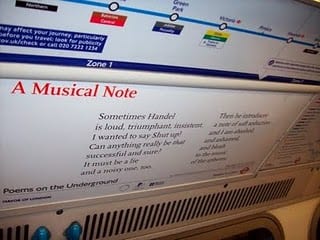This year’s National Poetry Competition attracted 13,000 entries. Winning and commended poems can be read here http://www.poetrysociety.org.uk/content/competitions/npc/npc2012winners and previous winners here http://www.poetrysociety.org.uk/content/npc30/
Nick Laird was one of the judges and has written a piece in the Guardian where he describes the process of selection:
‘Many were very good; a few hundred were excellent. Of those, I picked my final 50, as did my fellow judges Vicki Feaver and Bill Herbert and, over the course of a long day, we whittled down our combined 150 to a few prize-winning poems.’
It’s impossible to say exactly what makes a prize winning poem; criteria used for ‘very good’ and ‘excellent’ are ultimately subjective. The mystery of poetry is precisely how it hits home for some and not others; resonance being a personal experience. If there were a formula for poetry the magic would be lost. But there is practical advice on hand. This includes no border art, no pictures stolen from the internet, no size 8pt font, also avoid footnotes, pay attention to the title and don’t be obvious or pretentious with epigraphs. All useful comments when judges are actively looking for excuses to say no, although it is likely anyone doing their homework would not be guilty in the first place. To get onto the long list, a poem must ‘work’ on a personal level. It needs space for the reader to fill in from their own experiences; as Nick Laird suggests ‘capacious enough to surprise or confound’.
